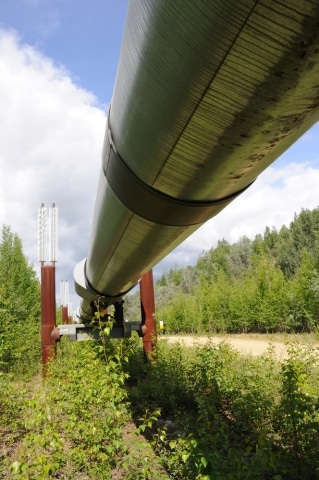The battle continues over the future of TransCanada’s Keystone XL tar sands pipeline, with the Tar Sands Blockade continuing and a large forthcoming President’s Day anti-Keystone XL rally set to take place in Washington, DC.
In a nutshell: Keystone XL, if approved by the U.S. State Department, will carry viscous and dirty tar sands crude – also known as diluted bitumen or “dilbit” – from Alberta, Canada down to Port Arthur, TX. From Port Arthur, the tar sands crude will be exported to the global market.
Muddying the waters on the decision is the fact that The Calgary Herald recently revealed that prospective Secretary of State, John Kerry, has financial investments in two tar sands corporations: Suncor and Cenovus. Kerry has $750,000 invested in Suncor and another $31,000 invested in Cenovus.
Which of course all begs the question: Is this another episode of State Department Oil Services all over again?
North America’s Shale Gas Industry’s Keystone XL
North of the border, TransCanada is proposing another export pipeline for the shale gas industry.
Dubbed the Prince Rupert Gas Transmission project, the $5.1 billion project will carry gas obtained via the controversial fracking process from the Montney Shale basin westward to the coast of British Columbia. From there, the gas will be exported in the form of liquefied natural gas (LNG) to Asia starting in 2018.
“Gas producers in British Columbia’s Montney Shale, far from North American population centers, are seeking Asian markets for the heating and power-plant fuel,” the Houston Chronicle‘s “Fuel Flex” explained.
US Debate Over Shale Gas Exports Also Continues
Meanwhile, south of the border, debate continues over the future of U.S. gas markets.
On Jan. 24, the comment period closes for the U.S. Department of Energy’s (DOE) study on LNG exports.
That study, contracted out to the oil, gas and coal industry-friendly NERA Economic Consulting concluded that exports are a net benefit for the U.S. economically. The Sierra Club has filed a Freedom of Information Act to discern how the Obama DOE went about choosing NERA as the contractor.
“Deciding to export the U.S. gas supply is a major public decision,” Deb Nardone, director of the Sierra Club’s Beyond Natural Gas Campaign said in a press release. “We deserve a full and fair conversation about it. That’s why we deserve to know how and why DOE picked this anti-environmental, pro-corporate consultant for this crucial report.”
On top of its looming decision on the Keystone XL, it’s likely that the Obama Administration will make a final decision on whether or not to greenlight shale gas exports sometime in 2013.
Though it’s still the dead of winter, the policy agenda is about to heat up in the energy and environment policy arenas inside the Beltway in the coming weeks.
Photo Credit: ShutterStock | Gary Whitton
Subscribe to our newsletter
Stay up to date with DeSmog news and alerts






